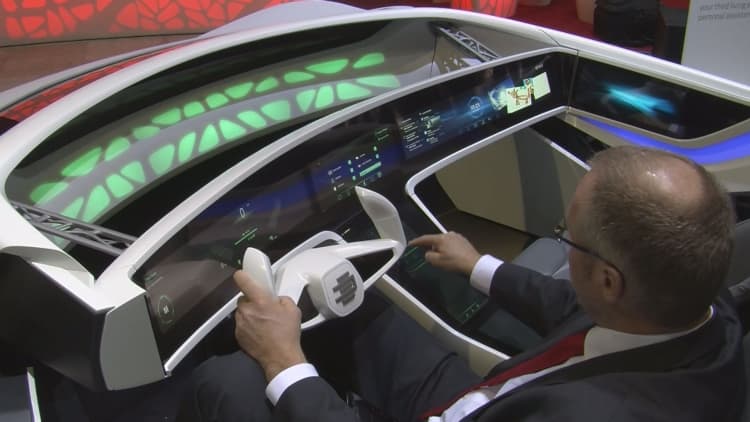Carmakers envision driverless cars becoming just as essential as an iPhone, but many consumers currently balk at that.
Some 75 percent of drivers say they would be afraid to be driven by an autonomous vehicle, according to a recent survey by insurance company AAA.
Some 61 percent of survey respondents want access to some kind of self-driving feature, like lane departure warnings, adaptive cruise control and self-parking, but many remain skeptical of the new technology, according to AAA. The January survey questioned more than 1,800 drivers age 18 and older.
More than 80 percent of baby boomers surveyed were afraid to ride in an autonomous vehicle; 69 percent of younger people felt that way. Similarly, 81 percent of female respondents expressed concerns with driverless vehicles compared to 67 percent of men.

Many automakers and analysts are optimistic about the prospects of the technology. As many as 20 million fully autonomous vehicles will be on the road by 2025, according to Juniper Research forecasts.
Still, that may be a bit ambitious.
"I'm a little bit skeptical when a carmaker…says we are going to be able to sell cars, autonomously driven, before 2020, in 2018, when the regulation is not ready," Carlos Ghosn, the chief executive of Renault-Nissan, said during an event at Davos in January. "And we know the technology is still in a prototype phase."
Maybe most drivers aren't ready for fully driverless driving, but some 84 percent of those surveyed cited safety as a key reason they would purchase a car with some self-driving features. Convenience, stress reduction and wanting the latest technology also motivated their desire for semi-autonomous features.
AAA's survey comes just weeks after Google's self-driving car struck a municipal bus in a minor crash in California.
The vehicle and the test driver "believed the bus would slow or allow the Google (driverless vehicle) to continue," the company said in a statement. "From now on, our cars will more deeply understand that buses (and other large vehicles) are less likely to yield to us than other types of vehicles, and we hope to handle situations like this more gracefully in the future."





